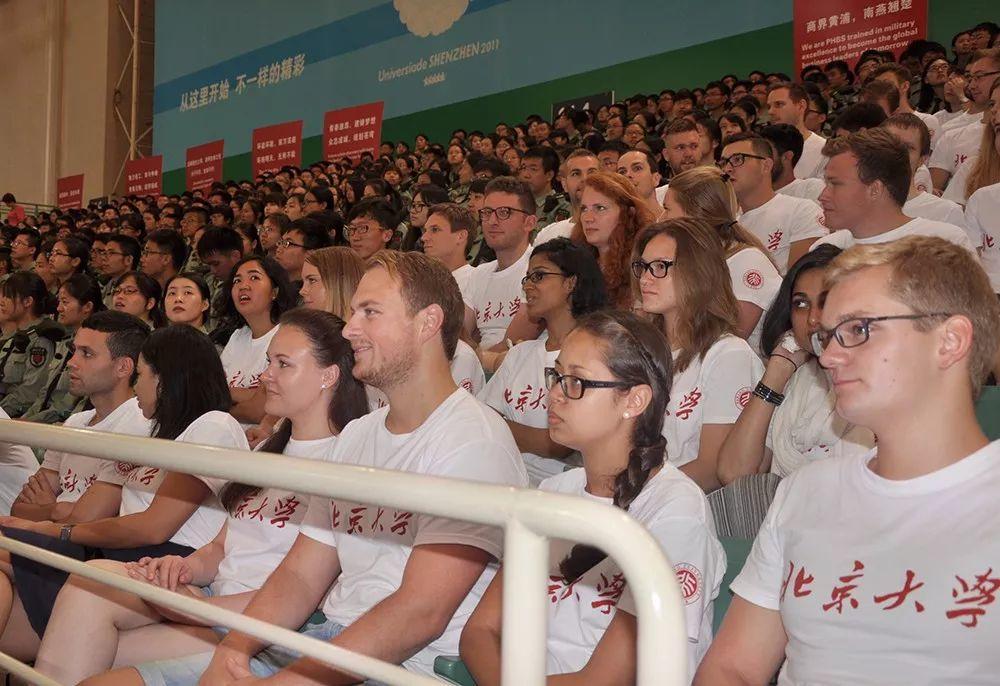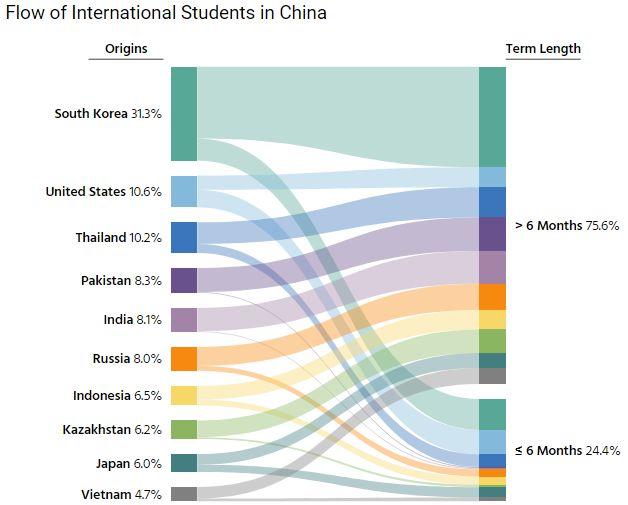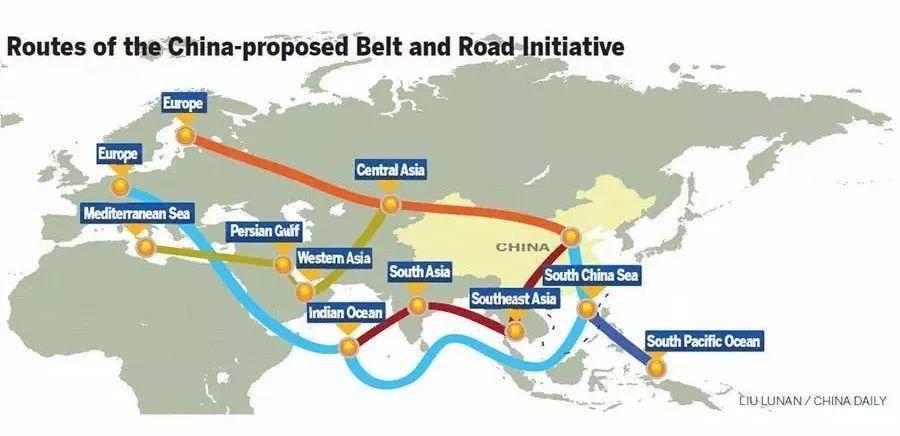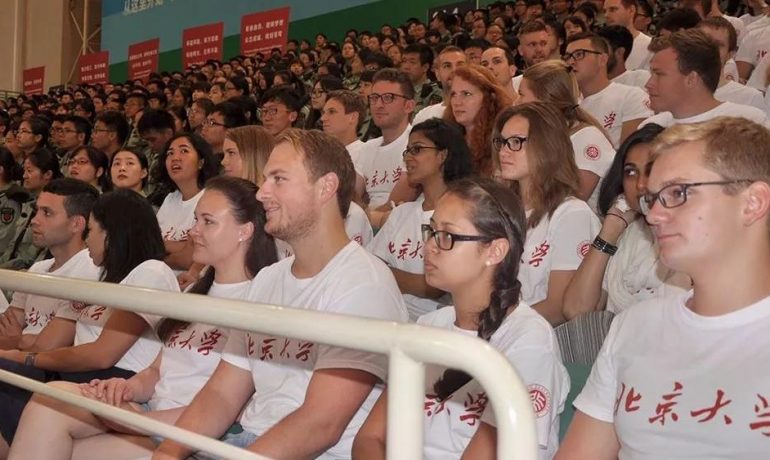
Historically China is one of the largest exporters of foreign students. But the recent economic development has played a vital role to introduce itself as a hub for international students as well.

How many foreigners study in China?
Whereas foreign students historically only traveled to China for language courses, students from around the world are increasingly drawn to China to enroll in technical courses and obtain professional degrees. China’s economic boom has also created new opportunities for middle-class families mainly from Asia and Africa, to send their children to study abroad.
According to China’s Ministry of Foreign Affairs (MOFA), over 440,000 foreigners studied in China in 2016 – marking a 35 percent increase from 2012. China attracts more international students than any other Asian power and ranks third globally, behind the United States and the United Kingdom.

Graph: This interactive explores the flow of international students in China by their country of origin. Students are divided by their term length. Short-term students remain in China for six months or less. Long-term students are enrolled in programs lasting longer than six months. (Source: chinapower.csis.org)
The total share of international students seeking higher-education degrees in China grew by 13 percent over the past 10 years, jumping from almost 55,000 students in 2006 to nearly 210,000 students in 2016.

As a share of all foreign students in China in 2016, 33 percent pursued undergraduate degrees, while 14 percent pursued either Master or Doctorate degrees. Approximately 30 percent of students were enrolled in primary or secondary schools.
Over 50 percent of China’s inbound international students come from neighboring countries, such as South Korea, Thailand, and Russia. Students from South Korea alone account for almost 16 percent of all foreign students studying in China in 2016. By comparison, the United States draws nearly 80 percent of its foreign students from Asia and the Middle East.
China welcomes foreign students,
but jobs hard to come by!
Indonesian student Calvin Ho became interested in China in 2013 and applied for a place in a two-year master’s programme in international relations at Beijing’s prestigious Tsinghua University last year.
He said he had been very satisfied with the class discussions, his alumni network and his weekend expeditions, and had hung the medals he earned by finishing two marathons in Beijing on his dormitory wall. But Ho, who is also learning Chinese, said that when it came to the finding a job after his graduation next summer, he admitted he was clueless.
“I really, really want to work in China, to take advantage of my educational background, but some of my seniors did not get a job and had to return home,” he said. “I think there are campus job fairs, but they are all in Chinese.”
“My feeling is it’s not difficult to find a job, but not necessarily the one you want,” said Charlotte Conerly, who graduated with a master’s degree in international relations from Tsinghua University this summer. “It’s very easy to find a job teaching English, or something that needs English speaking or writings skills,” but that was not the career of her dreams.

Malaysian Joker Lai Kok Kiong, who obtained a bachelor’s degree at a university in Fujian and is now studying for a master’s degree in sports industry management in Beijing, agreed it was not difficult to find a job, but it was harder to find one he really liked.
What’s in the near future?
However, China’s international student numbers might grow even more rapidly thanks to an aggressive new push to establish itself as the world’s most dominant power in higher education “the Belt and Road” education initiative, which was officially launched in June 2017.

The programme, which is formally titled the Belt and Road Alliance for Industry and Education Collaboration, is described by the IIE’s report as a series of “cultural and technical partnerships among higher education institutions along the 21st-century maritime Silk Road”, which will deepen connections mainly with universities in Hong Kong, Singapore, Vietnam and other Pacific neighbours, but also in Russia, Turkey and Eastern European countries.
“What we see is greater mobility, growing interconnectedness, increased dialogue and many more bridges rather than barriers,” they state.
Let’s have a look what other foreign studnts are saying about their life, study, and experience in China.
 Youtube link(outside of china)
Youtube link(outside of china)
https://www.youtube.com/watch?v=ac6kMFWaC2Y
What do you think?
Are you satisfied with Chinese education? Do you regret to come over here and study? What’s your future career plan? What you have gained from Chinese education system? Put your views on comment section.
Source:
http://www.scmp.com,
www.timeshighereducation.com
HACOS,Business Services Solutions Master








